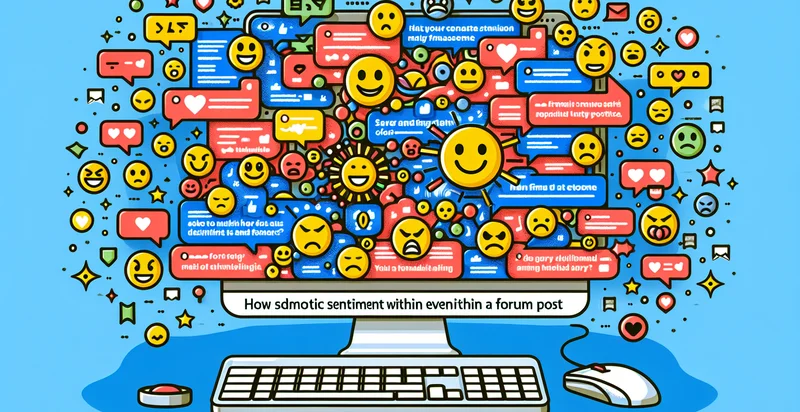Identify mental health post sentiment
using AI
Below is a free classifier to identify mental health post sentiment. Just input your text, and our AI will predict the sentiment of your mental health post - in just seconds.

Contact us for API access
Or, use Nyckel to build highly-accurate custom classifiers in just minutes. No PhD required.
Get started
import nyckel
credentials = nyckel.Credentials("YOUR_CLIENT_ID", "YOUR_CLIENT_SECRET")
nyckel.invoke("mental-health-post-sentiment", "your_text_here", credentials)
fetch('https://www.nyckel.com/v1/functions/mental-health-post-sentiment/invoke', {
method: 'POST',
headers: {
'Authorization': 'Bearer ' + 'YOUR_BEARER_TOKEN',
'Content-Type': 'application/json',
},
body: JSON.stringify(
{"data": "your_text_here"}
)
})
.then(response => response.json())
.then(data => console.log(data));
curl -X POST \
-H "Content-Type: application/json" \
-H "Authorization: Bearer YOUR_BEARER_TOKEN" \
-d '{"data": "your_text_here"}' \
https://www.nyckel.com/v1/functions/mental-health-post-sentiment/invoke
How this classifier works
To start, input the text that you'd like analyzed. Our AI tool will then predict the sentiment of your mental health post.
This pretrained text model uses a Nyckel-created dataset and has 15 labels, including Constructive, Critical, Despairing, Destructive, Discouraging, Downbeat, Encouraging, Hopeful, Negative and Neutral.
We'll also show a confidence score (the higher the number, the more confident the AI model is around the sentiment of your mental health post).
Whether you're just curious or building mental health post sentiment detection into your application, we hope our classifier proves helpful.
Related Classifiers
Need to identify mental health post sentiment at scale?
Get API or Zapier access to this classifier for free. It's perfect for:
- Social Media Monitoring: Leverage the sentiment identifier to analyze mental health-related posts on various social media platforms. This can help organizations gauge public sentiment around mental health topics, enabling them to tailor their outreach and support strategies.
- Crisis Intervention: Utilize the sentiment analysis tool in mental health hotlines or chat services to identify urgent or critical situations based on post sentiment. By quickly assessing the emotional tone of incoming messages, responders can prioritize cases requiring immediate attention, ensuring timely support for those in distress.
- Content Moderation: Implement the sentiment identifier in online forums and support communities to flag potentially harmful or negative discussions. By automatically identifying posts with negative sentiment, moderators can intervene earlier, fostering a healthier online environment for conversations about mental health.
- Research and Insights: Employ sentiment analysis to aggregate and study mental health trends over time from various platforms. This data can inform research initiatives and policies, helping researchers and mental health advocates understand evolving public perceptions and challenges related to mental health issues.
- Targeted Marketing Campaigns: Use the sentiment classification tool to segment audiences based on their sentiment towards mental health topics. This enables businesses and organizations to create tailored marketing campaigns that resonate with specific groups, ultimately improving engagement and outreach effectiveness.
- Employee Wellness Programs: Integrate sentiment analysis into internal communications within organizations to assess employee sentiment regarding mental health initiatives. This feedback can guide improvements in workplace wellness programs and help create a more supportive work environment.
- Predictive Analytics for Services: Combine sentiment analysis with predictive modeling to anticipate the mental health needs of specific demographics. By understanding sentiment trends, service providers can allocate resources more effectively, providing proactive support and enhancing overall community mental health services.


